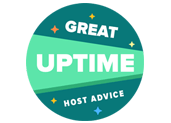Are you optimizing the content of your website for Google and for conversions? Awesome! Here are 5 ways that you can avoid SEO issues to optimize your website
1. Duplicate content
Avoid having duplicate content, which may harm your SEO performance. It adds little to no value for your visitors and confuses to other search engines too. Duplicate content can be caused by technical mishaps and manually copied content.
Having duplicate content pages on a website is something to look into and fix, but it will really weigh down your SEO performance when there is an excessive amount of duplicate content.
Why Duplicate content could be one of the issue for SEO?
When there are various versions of content available, it’s difficult for search engines to determine which version to index, and subsequently show in their search engine results page. This hits the performance for all versions of the content since they’re competing against each other.
Choose a preferred way of serving your content, and implement in better ways that lead to a positive impact on the content of your website.
2. No HTTPS Security
However, when you type your domain name into Google Chrome or browser, if your site is not secure this could cause users to immediately navigate away from your site back to the SERP.

If your site visible "Not secure" then you need an SSL certificate from a Certificate Authority to convert your site to HTTPS, your site will be secure only once you purchase and install your certificate.
3. Slow Page Speed
"Slow will definitely kill the time" This would be one of the major issue of SEO optimizing for your website. If your site doesn’t load quickly generally 3 seconds or less your users will lose patience.

The result of site speed issues can vary from simple to complex. Commonly, site speed solutions can include JavaScript minifying and server response time improvement. Otherwise, speak with your web developer to ensure the best possible solution for your site’s particular page speed issues.
4. Broken Links
Another factor that can affect Google page ranking would be the "Broken links" which leads to reflect lower quality content and create a poor user experience.
If you have high-quality content with good external and internal links, which will help to reach out to the users who will be looking for relevant search results.
Lets clear this out that how to fix this issue, Firstly you can use Link Explorer to find all external links that are broken. From there, you can reach out to the site pages with broken links and provide them with the correct link or new page.
Thereafter you can use site audit which will help you find the existing internal links, you’re required to fix those links by replacing the broken links with the correct link/ new page. The regular site audits are the best and the most scalable way to address broken links. The value of external links requires regular monitoring.
5. No XML Sitemaps
This is one of the most common issues with websites with misconceptions about XML sitemaps. It is important to note that by submitting an XML sitemap to Google Search Console you are providing a clue to google that pages have good quality search landing pages and good enough quality to be worth indexing.
Once you know what the issues, you can either modify the page content or links to the pages. How to find the Sitemaps? If you are using WordPress CMS, the Yoast SEO plugin can help to get automatically generate XML sitemaps for you. OR you can use XML-sitemaps for non WordPress CMS.
Conclusion
Focus more on content if you write solid content, you can attract traffic and make sure your site loads quickly on both mobile and desktop that you’re attracting backlinks. Create separate campaigns for on-page and off-page SEO. Use XML Sitemaps and eliminate Indexing problems. Resolve the Broken link issues on priority. Secure your website with SSL certification.







Leave a Reply